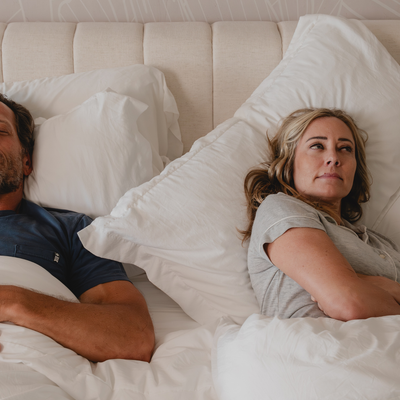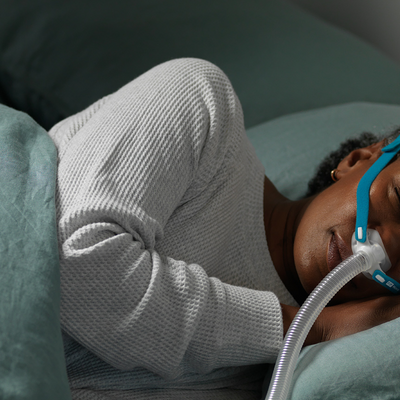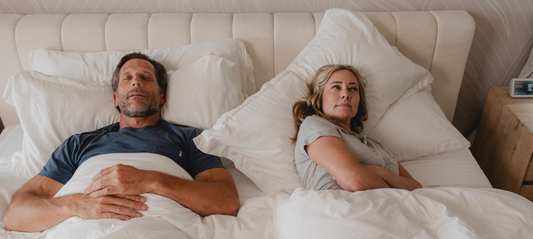Did you know that almost a third of adults don’t get enough sleep? According to the Centers for Disease Control and Prevention (CDC), the average adult needs at least 7 hours of sleep each night. Poor sleep hygiene prevents some people from meeting this benchmark.
Sleep hygiene describes positive routines and habits before going to bed. Your health suffers when you don’t get enough sleep, affecting your memory, attention span, and mood. It can even increase your risk for Alzheimer’s and other neurological disorders. Following a healthy bedtime routine can help improve sleep hygiene so you can get a good night's rest.
Signs of poor sleep hygiene
Poor sleep hygiene prevents you from falling asleep and staying asleep. Anyone can develop good sleep hygiene—you just need to learn effective sleep hygiene techniques, and avoid bad bedtime habits.
One of the biggest obstacles to good sleep is your smart phone. While it’s tempting to play on your phone until you fall asleep, the blue light it emits is very similar to sunlight. Exposure to this light can prevent your body from making a hormone called melatonin.
Your body makes melatonin when it’s dark to help you fall asleep. People with certain conditions may take melatonin supplements to help them sleep if their body doesn’t make enough. However, most people don’t need these if they commit to a healthy sleep hygiene routine.
In addition to avoiding smartphone use at bed time, here are several bedtime habits you should also break:
- Eating a big meal before bed
- Changing your bedtime frequently
- Drinking alcoholic or caffeinated beverages late in the day
- Using your bed for things other than sleep and sex
How to improve sleep hygiene
Removing bad habits from your bedtime routine is important, but there are also sleep hygiene techniques you should adopt. These techniques are proven to help you fall asleep and stay asleep.
Choose an appropriate bedtime
Good quality sleep doesn’t matter as much if you don’t sleep long enough. You need to choose a bedtime that allows you to get at least 7 hours of sleep.
Move your body
Regular exercise has many health benefits. It supports cardiovascular health, healthy weight, and positive mood. Moving your body can also help you get restful sleep! Not only does it help you fall asleep, but it also helps prevent you from waking in the middle of the night. Just make sure your workout is over at least an hour and a half before you try to sleep, or you may have a hard time falling asleep!
Get comfortable
It’s hard to fall asleep if you’re not comfortable. Some people prefer to sleep in a warmer environment than others. A heavy comforter helps soothe some to sleep, and some people prefer a thin sheet. Whatever your preferences, make your sleep environment comfortable to help get some Zs.
Wind down
Establish a routine that helps you wind down at the end of the day. Washing your face, brushing your teeth, and a nice shower are great ways to signal to your body that it’s time for bed. Then, make sure your bedroom is nice and quiet so you feel relaxed as you lay down to sleep.
Be consistent
One of the most important aspects of sleep hygiene is consistency. Try to maintain the same sleep routine each night, including your bedtime. Your circadian rhythm, or sleep cycle, is easier to manage when you’re going to bed at the same time every day—even on the weekend!
Sleep apnea and sleep quality
Sometimes, despite your best efforts, you still wake up in the morning feeling exhausted. There are certain sleep disorders and health conditions that may be the cause. While sleep hygiene habits are always beneficial, they aren’t enough to overcome the problems created by an untreated sleep disorder.
Sleep apnea is one of the most common sleep disorders responsible for poor quality sleep. People who have sleep apnea wake up many times each night because their airway collapses, causing them to stop breathing. They may not be aware of how frequently they wake, but they feel it in the morning when they're still tired.
The only way to get a diagnosis for sleep apnea is through a sleep study. After diagnosis, your doctor may prescribe CPAP therapy, positional therapy, or an oral appliance). All of these therapies use different techniques to prevent your airway from collapsing while you sleep. .
Lofta can help
For decades, the only way to get a sleep study for sleep apnea was in a hospital. Lofta is changing that. We make it easy and convenient for you to get a virtual consultation with a doctor to discuss your sleep concerns. After your appointment, we send you a WatchPAT One device to perform a sleep study in the comfort of your home.
If your home sleep study indicates a sleep apnea diagnosis, Lofta can help you understand the treatment options available to you. Our mission is to help you get the restful sleep you deserve. Visit our website to learn more about home sleep studies and how Lofta makes sleep apnea care accessible.
Gain valuable insights into your sleep health by reading our resource on the importance of sleep apnea testing, and our in-depth guide on at-home sleep apnea testing, including it's benefits, working and more!










































